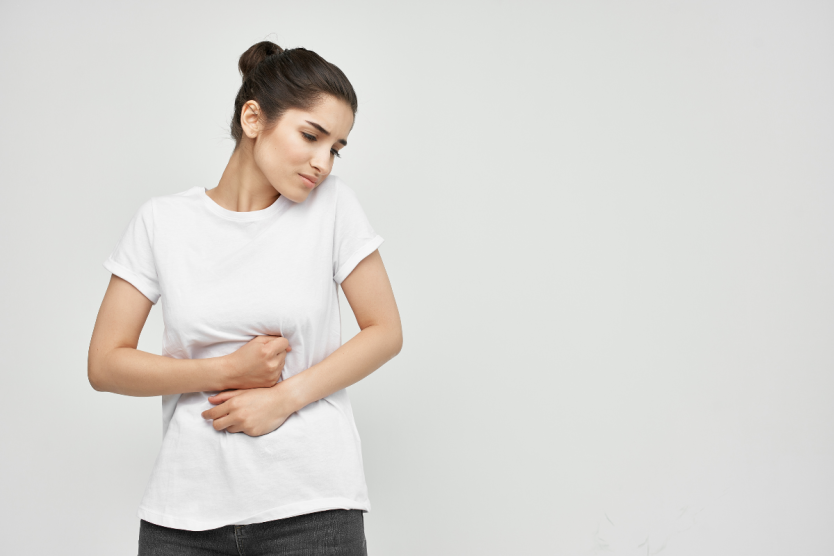If you’re suffering with symptoms of interstitial cystitis, you search for ways to ease those side effects.
Interstitial cystitis is a condition where the walls of your bladder become irritated and inflamed, compared with those of a normal bladder.1
This chronic condition causes bladder pressure, bladder pain and sometimes pelvic pain, and the pain can range from mild to severe. Interstitial cystitis is also part of a spectrum of diseases known as painful bladder syndrome, or bladder pain syndrome.2
If you’ve been diagnosed with this condition, you’re not alone. Estimates suggest that up to 12% of women may have early symptoms of IC,3 and the National Kidney Foundation estimates that 700,000 to 1 million Americans currently suffer from the disease.4
So what can you do to help ease symptoms, and specifically, are there changes to your diet that can help the side effects of interstitial cystitis? Let’s take a look.
What Happens When You Have Interstitial Cystitis?
You know that your bladder is the organ that stores urine, but did you know that when it’s full, it sends a signal to your brain? This signal, sent through the pelvic nerves, is how you know it’s time to go to the bathroom.2
With interstitial cystitis, those signals to the brain get mixed up. You might feel the need to urinate more often, and the signals may happen with smaller volumes of urine than most people.2
Symptoms can vary among those with the condition, but a typical sign is that persistent, urgent need to urinate, and frequent urination, often of small amounts, throughout the day and night—sometimes urinating up to 60 times a day. Other common signs include pain in your pelvis, often chronic, pain or discomfort while the bladder fills and relief after urinating, and pain during sex.2
These symptoms and the pain means interstitial cystitis can have a long-lasting impact on your quality of life. And although there’s no cure, medications and other therapies may offer relief.2 Changes to your diet may also help.
How Does Diet Impact Interstitial Cystitis?
It seems that making some dietary changes may help ease your symptoms, as some people with IC report that certain foods and drinks worsen their symptoms. Noting what you eat and drink before the onset of symptoms or a flare-up of IC can help you learn what foods and drinks you should avoid.5
For instance, eliminating certain foods, such as those that are acidic or spicy, may decrease the severity of IC symptoms.4 If you notice that acidic foods or drinks are causing flare-ups, like citrus fruits, peppers, carbonated beverages, and tomatoes, then your health care provider may suggest taking an antacid with meals. That can help reduce the amount of acid that gets into your pee.5 Or, you can avoid eating those foods that you find make your symptoms worse.
Other common foods and drinks that may exacerbate symptoms include:5
- alcohol
- artificial sweeteners
- caffeine
- carbonated beverages
- chocolate
- tomatoes
- fruit juices
Instead of citrus fruits like oranges or pineapple, try bananas, blueberries, melons or apples. Instead of chili peppers or tomatoes, try vegetables like asparagus, avocado, celery, and cucumber. Beans, including green beans, are also a good choice, and cheese is a better option than processed cheese. Try sherbet instead of chocolate ice cream.6
You’ll be the best gauge of what works and what doesn’t, but you can also ask your doctor to refer you to a dietician for advice on diet and interstitial cystitis.
Get a Diagnosis
The first step in determining if you have Interstitial Cystitis is to see a doctor for diagnosis. In particular, if you’re experiencing chronic bladder pain or urinary urgency and frequency, seek medical attention.2 Use our Physician Finder to find a doctor near you with expertise in women’s health to help with your concerns about pelvic pain and frequent urination, and diet tips to help with IC.
2 https://www.mayoclinic.org/diseases-conditions/interstitial-cystitis/symptoms-causes/syc-20354357
4 https://www.kidney.org/atoz/content/interstitial
5 https://my.clevelandclinic.org/health/diseases/15735-interstitial-cystitis-painful-bladder-syndrome
















